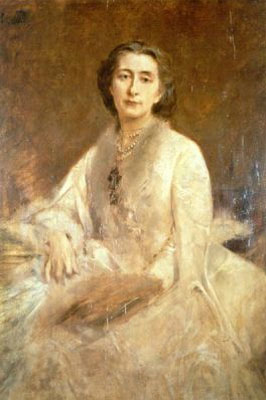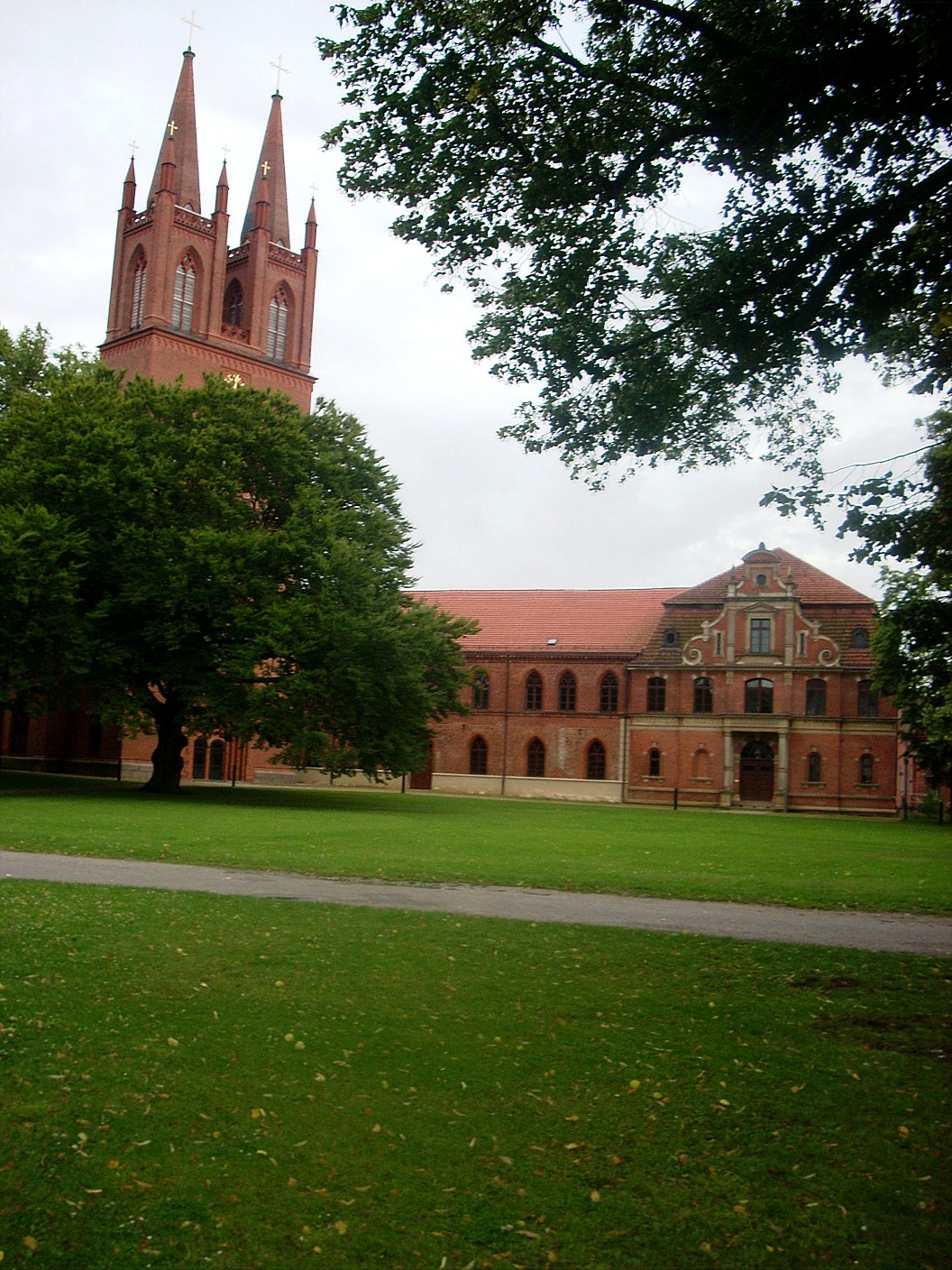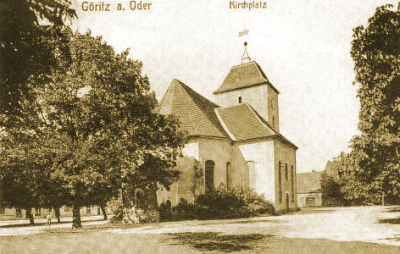|
Bülow Family
The House of Bülow () is the name of an old German and Danish noble family of Mecklenburg origin, members of which have borne the title of Baron (''Freiherr''), Count (''Graf'') or Prince ('' Fürst''). History The family traces its main line back to one knight ''Godofridus de Bulowe'', mentioned in a 1229 deed. He was named after the village of Bülow near Königsfeld, then part of the Bishopric of Ratzeburg. The family made great donations to nearby Rehna Abbey. As ''Bülow'' was also a word for oriole in the local dialect based on Wendish roots, the bird is depicted as a crest in the family's coat of arms. In Mecklenburg the family acquired around 110 estates, castles or villages from 1229 onwards, nine of which remained in its possession until the confiscations in communist East Germany in 1945. From 1470 to this day the family holds the manor of Gudow in Saxe-Lauenburg (today part of the former West-German state of Schleswig-Holstein), and in the 19th century it acqui ... [...More Info...] [...Related Items...] OR: [Wikipedia] [Google] [Baidu] |
Noble Family
Nobility is a social class found in many societies that have an aristocracy. It is normally ranked immediately below royalty. Nobility has often been an estate of the realm with many exclusive functions and characteristics. The characteristics associated with nobility may constitute substantial advantages over or relative to non-nobles or simply formal functions (e.g., precedence), and vary by country and by era. Membership in the nobility, including rights and responsibilities, is typically hereditary and patrilineal. Membership in the nobility has historically been granted by a monarch or government, and acquisition of sufficient power, wealth, ownerships, or royal favour has occasionally enabled commoners to ascend into the nobility. There are often a variety of ranks within the noble class. Legal recognition of nobility has been much more common in monarchies, but nobility also existed in such regimes as the Dutch Republic (1581–1795), the Republic of Genoa (1005–1 ... [...More Info...] [...Related Items...] OR: [Wikipedia] [Google] [Baidu] |
Gudow
Gudow is a municipality in the district of Lauenburg, in Schleswig-Holstein, Germany. History Since 1470 the Bülow family owns the estate and manor house of Gudow, to this day. Between 1982 and 1990 Gudow served as West German inner German border crossing for cars travelling along Bundesautobahn 24 between the East German Democratic Republic, or West Berlin and the West German Federal Republic of Germany Germany, officially the Federal Republic of Germany (FRG),, is a country in Central Europe. It is the most populous member state of the European Union. Germany lies between the Baltic and North Sea to the north and the Alps to the south .... The traffic was subject to the Interzonal traffic regulations, that between West Germany and West Berlin followed the special regulations of the Transit Agreement (1972). See also * Gudow-Sterley References Municipalities in Schleswig-Holstein Inner German border Herzogtum Lauenburg {{HerzogtumLauenburg-geo-st ... [...More Info...] [...Related Items...] OR: [Wikipedia] [Google] [Baidu] |
Andreas Von Bülow
Andreas von Bülow (born 17 July 1937) is a German politician of the Social Democratic Party (SPD) and writer. He was Minister for Research and Technology from 1980 to 1982. Von Bülow has authored books about intelligence agencies, including ''In the Name of the State. CIA, BND and the criminal machinations of secret services.'' (german: link=no, Im Namen des Staates. CIA, BND und die kriminellen Machenschaften der Geheimdienste.) and '' The CIA and 11 September'' (''Die CIA und der 11. September''). He holds a doctorate degree in Jurisprudence.''Frankfurter Allgemeine Zeitung'', 9 September 2003 Political career Bülow, a member of the Bülow family, served as secretary of state in the German Federal Ministry of Defence (1976–1980) and Minister for Research and Technology (1980–1982), both during the Chancellor Helmut Schmidt administration, and was regarded as a "rising star" of German politics at the time. He served for 25 years as an SPD member of the German parliamen ... [...More Info...] [...Related Items...] OR: [Wikipedia] [Google] [Baidu] |
Bernhard Von Bülow
Bernhard Heinrich Karl Martin, Prince of Bülow (german: Bernhard Heinrich Karl Martin Fürst von Bülow ; 3 May 1849 – 28 October 1929) was a German statesman who served as the foreign minister for three years and then as the chancellor of the German Empire from 1900 to 1909. A fervent supporter of '' Weltpolitik'', Bülow single-mindedly devoted his chancellorship to making Germany a leading power on the world stage. Despite presiding over sustained economic growth and technological advancement within his country, his government's foreign policy did much to antagonize the international community and significantly contributed to the outbreak of the First World War. Early life He was born at Klein-Flottbeck, Holstein (now part of Altona, Hamburg). His father, Bernhard Ernst von Bülow, was a Danish and German statesman and member of an old House of Bülow, while his mother was a wealthy heiress, Louise Victorine Rücker (1821-1894). His brother, Major-General Karl Ulrich ... [...More Info...] [...Related Items...] OR: [Wikipedia] [Google] [Baidu] |
Richard Wagner
Wilhelm Richard Wagner ( ; ; 22 May 181313 February 1883) was a German composer, theatre director, polemicist, and conductor who is chiefly known for his operas (or, as some of his mature works were later known, "music dramas"). Unlike most opera composers, Wagner wrote both the libretto and the music for each of his stage works. Initially establishing his reputation as a composer of works in the romantic vein of Carl Maria von Weber and Giacomo Meyerbeer, Wagner revolutionised opera through his concept of the '' Gesamtkunstwerk'' ("total work of art"), by which he sought to synthesise the poetic, visual, musical and dramatic arts, with music subsidiary to drama. He described this vision in a series of essays published between 1849 and 1852. Wagner realised these ideas most fully in the first half of the four-opera cycle '' Der Ring des Nibelungen'' (''The Ring of the Nibelung''). His compositions, particularly those of his later period, are notable for their complex textur ... [...More Info...] [...Related Items...] OR: [Wikipedia] [Google] [Baidu] |
Cosima Wagner
Francesca Gaetana Cosima Wagner (née Liszt; 24 December 1837 – 1 April 1930) was the daughter of the Hungarian composer and pianist Franz Liszt and Franco-German romantic author Marie d'Agoult. She became the second wife of the German composer Richard Wagner, and with him founded the Bayreuth Festival as a showcase for his stage works; after his death she devoted the rest of her life to the promotion of his music and philosophy. Commentators have recognised Cosima as the principal inspiration for Wagner's later works, particularly ''Parsifal''. In 1857, after a childhood largely spent under the care of her grandmother and with governesses, Cosima married the conductor Hans von Bülow. Although the marriage produced two children, it was largely a loveless union, and in 1863 Cosima began a relationship with Wagner, who was 24 years her senior. They married in 1870; after Wagner's death in 1883 she directed the Bayreuth Festival for more than 20 years, increasing its repertoire ... [...More Info...] [...Related Items...] OR: [Wikipedia] [Google] [Baidu] |
Hans Von Bülow
Freiherr Hans Guido von Bülow (8 January 1830 – 12 February 1894) was a German conductor, virtuoso pianist, and composer of the Romantic era. As one of the most distinguished conductors of the 19th century, his activity was critical for establishing the successes of several major composers of the time, especially Richard Wagner and Johannes Brahms. Alongside Carl Tausig, Bülow was perhaps the most prominent of the early students of the Hungarian composer, virtuoso pianist and conductor Franz Liszt; he gave the first public performance of Liszt's Sonata in B minor in 1857. He became acquainted with, fell in love with and eventually married Liszt's daughter Cosima, who later left him for Wagner. Noted for his interpretation of the works of Ludwig van Beethoven, he was one of the earliest European musicians to tour the United States. Life and career Bülow was born in Dresden into an old and prominent House of Bülow. He was the son of novelist Karl Eduard von Bülow (180 ... [...More Info...] [...Related Items...] OR: [Wikipedia] [Google] [Baidu] |
Holy Blood Of Wilsnack
The Holy Blood of Wilsnack was the name given to three hosts, which survived a fire in 1383 that burned the church and village to the ground. The hosts were thus seen as miraculous. The relics became the destination of medieval religious pilgrimages to Bad Wilsnack, Germany for nearly two centuries. Revenue from the many pilgrims enabled the town to build the large St. Nicholas' Church (also known as Holy Blood Church) at the site. The hosts were destroyed by reformers in 1558 during the Protestant Reformation. History In 1383 a quarrel broke out between one of the knights of the Prignitz, Heinrich von Bülow, known as "Big Head", and the Bishop of Havelberg, Dietrich Man. Von Bülow raided Wilsnack, one of the bishopric's villages, and burned it to the ground. Entering the ruins of his church, the parish priest found that in the ''Sacrarium'' on the altar were three consecrated hosts. They were untouched by the fire but stained with blood. Bishop Dietrich acted to consecrat ... [...More Info...] [...Related Items...] OR: [Wikipedia] [Google] [Baidu] |
Bad Wilsnack
Bad Wilsnack (until 1929 Wilsnack) is a small town in the Prignitz district, in Brandenburg, Germany. The former pilgrimage site of the Holy Blood of Wilsnack has been officially recognised as a spa town (''Bad'') since 1929. It is the administrative seat of the ''Amt'' ("collective municipality") Bad Wilsnack/Weisen. Geography The town is situated within the Prignitz historical region in the northwest of Brandenburg, roughly halfway between Berlin and Hamburg. It is located on the Karthane river, which flows into the Elbe at nearby Wittenberge. A few kilometers to the south is the confluence of the Havel and Elbe rivers. The neighbouring municipality of Rühstädt is famous for its high number of resident white storks. Bad Wilsnack station is a stop on the Berlin–Hamburg Railway. The townscape is marked by the large St Nicholas Church of the Holy Blood and several timber framed houses. History Wilsnack in the Margraviate of Brandenburg was first mentioned in 1384. The town ... [...More Info...] [...Related Items...] OR: [Wikipedia] [Google] [Baidu] |
Heinrich Von Bülow (Grotekop)
Heinrich von Bülow also known as Big Top (Grotekop) was a knight born in the middle of the fourteenth century. He died either before 1395 or during 1415. He prospered as a warrior-supporter of Prince Albrecht of Mecklenburg (and of Sweden). Outside Mecklenburg, Heinrich Grotekop is still remembered in many quarters as an archetypal robber baron on account of his appetite for feuding. Provenance and family The von Bülow family is an old aristocratic family from Northern Germany. Heinrich von Bülow was called Big Head (Grotekop) on account of his ancestral home at Castle Preensberg, some to the east of Wismar, close to the main trade route to Rostock, and located in a village now known as Benz. The first recorded mention of the place dates from 1376. Heinrich was the son of another Heinrich von Bülow, and also had five brothers with whom he worked closely. Life Heinrich von Bülow first made his mark in 1383 when he invaded the little town of Wilsnack, as part of a vend ... [...More Info...] [...Related Items...] OR: [Wikipedia] [Google] [Baidu] |
Dobbertin Abbey
Dobbertin Abbey (''Kloster Dobbertin'') is a former Benedictine monastery of monks, afterwards housed a community of nuns, and later still a women's collegiate foundation, located in the municipality of Dobbertin near Goldberg in the district of Ludwigslust-Parchim in Mecklenburg-Vorpommern, Germany. It stands on a spit of land in the Dobbertiner See and includes the only church with two towers in Mecklenburg. History The abbey was founded during the Christianisation of Germany in about 1220 by Prince Heinrich Borwin II of Mecklenburg and was the first field monastery in Mecklenburg. The founder gave it to the Benedictines for a community of monks. 15 years later it was turned into a Benedictine nunnery. In 1549 the Landtag at Sagsdorf Bridge near Sternberg resolved to introduce the Lutheran Reformation into Mecklenburg. Despite violent resistance the abbey was secularised and in 1572 converted into a Lutheran collegiate foundation for noblewomen (''Damenstift''). In the mid ... [...More Info...] [...Related Items...] OR: [Wikipedia] [Google] [Baidu] |
Bishopric Of Lebus
The Diocese of Lebus (; ; ) is a former diocese of the Catholic Church. It was erected in 1125 and suppressed in 1598. The Bishop of Lebus was also, '' ex officio'', the ruler of a lordship that was coextensive with the territory of the diocese. The geographic remit included areas that are today part of the land of Brandenburg in Germany and the Province of Lubusz in Poland. It included areas on both sides of the Oder River around the town of Lebus ( pl, link=no, Lubusz). The cathedral was built on the castle hill in Lubusz and was dedicated to St Adalbert of Prague. Later, the seat moved to Górzyca (german: link=no, Göritz), back to Lebus and finally to Fürstenwalde ( pl, link=no, Przybór) on the River Spree. It bordered the Diocese of Poznań to the east, the Diocese of Brandenburg to the west, the Diocese of Cammin (Kamień) to the north and the Diocese of Meissen to the south. Establishment The Lubusz Land formed part of Poland since the reign of its first historic r ... [...More Info...] [...Related Items...] OR: [Wikipedia] [Google] [Baidu] |




.jpg)



